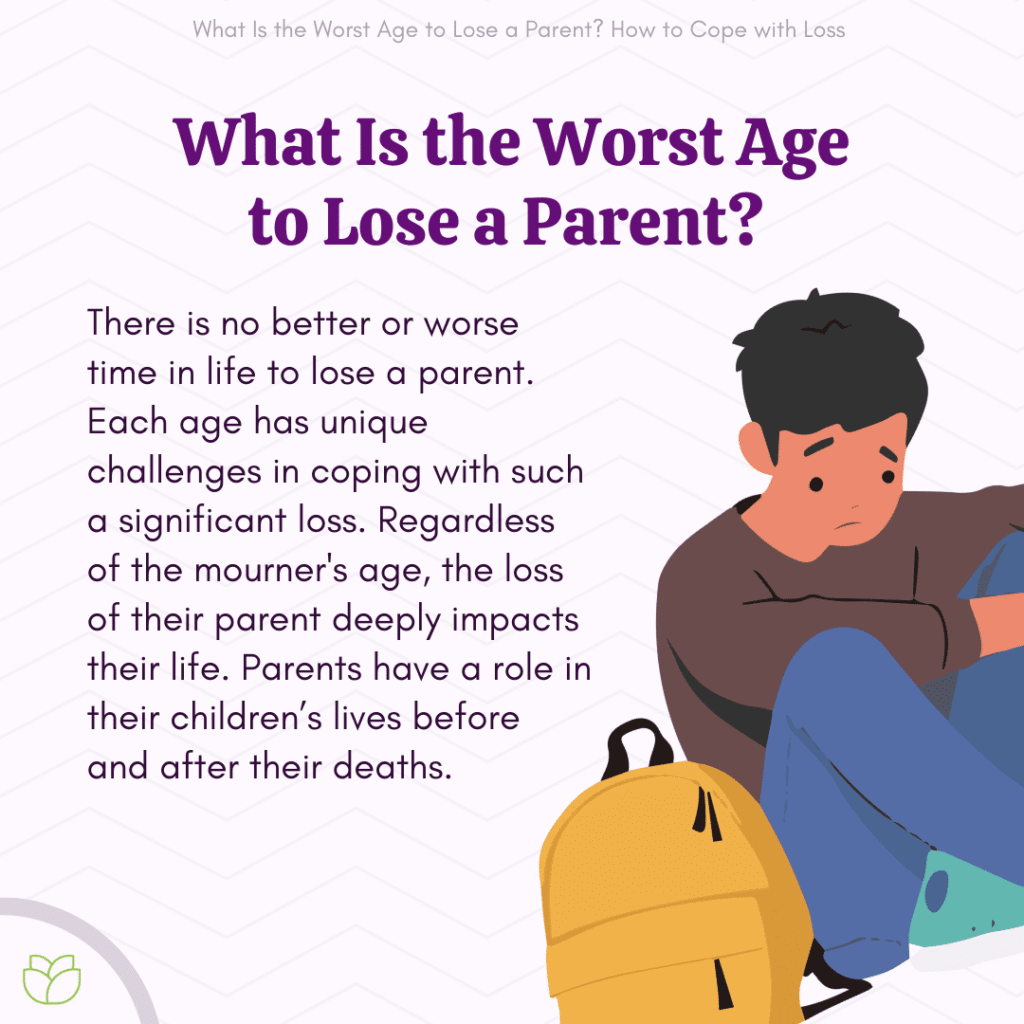Losing a parent is a deeply painful experience that can leave lasting scars, regardless of age. However, the impact of parental loss often intensifies during adolescence and young adulthood. These crucial developmental stages involve navigating complex emotions, establishing independence, and forging a unique identity. The absence of a parent’s guidance and support during these formative years can significantly disrupt this journey, leading to heightened grief and emotional turmoil. This article delves into the specific challenges faced by adolescents and young adults grieving the loss of a parent, exploring the profound impact on their development and offering insights into coping mechanisms.
This article will first examine the general experience of grief after parental loss, followed by a detailed exploration of the unique challenges faced during adolescence and young adulthood. We will then discuss the impact on identity formation and the pursuit of independence, highlighting the crucial role parents play in these processes. Finally, we will offer practical coping mechanisms to help adolescents and young adults navigate this difficult period.
Grief After Parental Loss
Grief is a natural human response to loss, encompassing a wide range of emotions such as sadness, anger, guilt, and confusion. It’s a complex and individual process that unfolds differently for everyone. When a parent dies, the grieving person experiences a profound sense of emptiness and disorientation. They may struggle to accept the reality of the loss, leading to denial or disbelief.
The intensity of grief can vary depending on factors such as the relationship with the deceased parent, the circumstances surrounding their death, and individual coping mechanisms. Some individuals may experience intense waves of sadness that come and go, while others may feel a more constant sense of sorrow. Regardless of the form it takes, grief is a deeply personal journey that requires time, patience, and understanding.
Challenges in Adolescence

Adolescence is a period of significant physical, emotional, and social development. Teenagers are striving to establish their independence, explore their identities, and navigate complex relationships. The loss of a parent during this crucial stage can exacerbate existing challenges and create new ones.
Teenagers grieving the loss of a parent may struggle with feelings of abandonment, anger, and guilt. They may also experience difficulty concentrating in school, withdrawing from social activities, or engaging in risky behaviors as a way to cope with their pain. The absence of a parent’s guidance and support can leave teenagers feeling lost and alone, making it harder to navigate the complexities of adolescence.
Impact on School Performance
The emotional turmoil associated with grief can significantly impact a teenager’s academic performance. They may find it difficult to concentrate in class, complete assignments, or participate in school activities. The loss of a parent can also disrupt their routine and create feelings of instability, further hindering their ability to focus on their studies.
Social Isolation
Grief can lead to social withdrawal as teenagers may feel overwhelmed by their emotions and reluctant to engage with others. They may avoid social gatherings, withdraw from friends, or struggle to connect with peers who haven’t experienced a similar loss. This isolation can exacerbate feelings of loneliness and despair, making it even harder to cope with grief.
Impact on Identity Formation
Identity formation is a central aspect of adolescence, involving the exploration of values, beliefs, interests, and aspirations. Parents play a crucial role in this process by providing guidance, support, and encouragement. The loss of a parent can disrupt this journey, leaving teenagers feeling uncertain about who they are and where they belong.
Without a parent’s perspective and input, teenagers may struggle to define their values, make important decisions, or develop a sense of self-worth. They may also experience feelings of guilt or inadequacy, believing that they have failed to live up to their parent’s expectations. The absence of a parent’s love and support can create a void that is difficult to fill, leading to feelings of emptiness and confusion.
Seeking Independence

Young adulthood is a time when individuals strive for autonomy and independence from their families. They begin to make their own decisions, pursue their own goals, and establish their own lives. The loss of a parent during this stage can significantly impact the pursuit of independence.
Teenagers grieving the loss of a parent may struggle with feelings of responsibility and obligation towards their surviving family members. They may feel pressured to take on adult roles prematurely, sacrificing their own needs and aspirations in order to support their loved ones. This can lead to resentment, burnout, and a sense of being overwhelmed.
Coping Mechanisms
Coping with the loss of a parent is a challenging journey that requires patience, self-compassion, and support. While grief is a natural process, there are healthy coping mechanisms that can help adolescents and young adults navigate this difficult time.
Seeking Support
Connecting with others who understand what you’re going through can be incredibly helpful. Talking to friends, family members, or a therapist can provide emotional support and validation. Joining a grief support group can also offer a sense of community and shared experience. Remember that you don’t have to go through this alone.
Expressing Emotions
Allow yourself to feel your emotions fully, whether it’s sadness, anger, guilt, or confusion. Bottling up your feelings can be detrimental to your mental health. Find healthy outlets for expressing your emotions, such as journaling, art therapy, or physical activity.
Self-Care
Taking care of your physical and emotional well-being is essential during times of grief. Make sure you’re getting enough sleep, eating nutritious meals, and engaging in activities that bring you joy. Practice mindfulness techniques, such as meditation or deep breathing exercises, to help manage stress and anxiety.
Conclusion
Losing a parent at any age is a deeply painful experience, but the challenges faced by adolescents and young adults can be particularly profound. The impact on identity formation, the pursuit of independence, and overall well-being can be significant. However, with time, support, and healthy coping mechanisms, individuals can navigate this difficult journey and find ways to honor their parent’s memory while moving forward with their lives. Remember that grief is a process, not an event, and it takes time to heal. Be patient with yourself, seek support when needed, and allow yourself the space to grieve in your own way.



